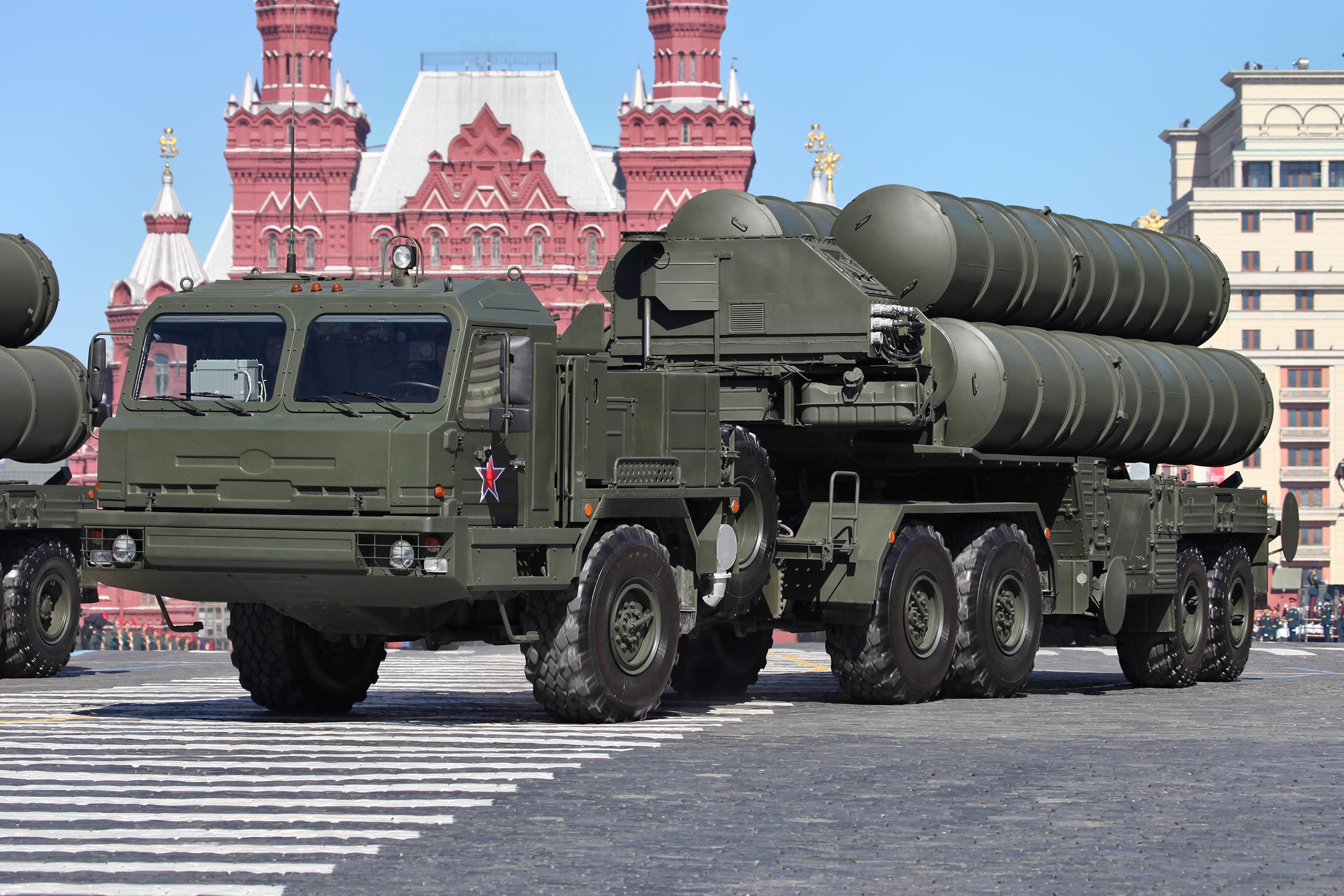
A Russian S-400 air defense missile system on its transporter, erector, launcher vehicle on May 7, 2013, in Moscow. Photo: Vitaly V. Kuzmin.
The Pentagon on Friday ratcheted up its threats to Turkey—a NATO ally—if it proceeds with its planned purchase of the Russian-made S-400 “Triumf” surface-to-air missile system.
Pentagon spokesman Charlie Summers told reporters there would be “grave consequences” in terms of Turkey’s relationship with the US if it completes the purchase, including, but not limited to, blocking the country from buying the F-35 and the Patriot missile system.
Results would be “very heavy,” he said. This week, Turkish President Recep Tayyip Erdogan said his country not only has a “done deal” with the S-400 system, but is even considering buying the more advanced S-500 system in the future.
Summers’ comments come two days after Army Gen. Curtis Scaparrotti, commander of US European Command and NATO supreme allied commander, told lawmakers the US should not sell F-35s to Turkey if it buys the S-400.
Turkey plans to buy 100 F-35As, and took delivery of its first aircraft in June 2018.
That jet is based at Luke AFB, Ariz., for pilot training.
Vice Adm. Mat Winter, F-35 Program Executive Officer, told Air Force Magazine in November he provided the Pentagon with an assessment of the impact to the program if Turkey was pushed out. Turkey, he said, “produces 844 parts” for the F-35, and “they are quality parts, affordable parts, and delivered on time.”
Turkey is also on track to set up an F135 engine depot on its soil and is to become a second source to Northrop Grumman for the F-35 mid-fuselage.
Winter said at the time, “I am doing appropriate acquisition supply chain risk management, like I do everywhere.”